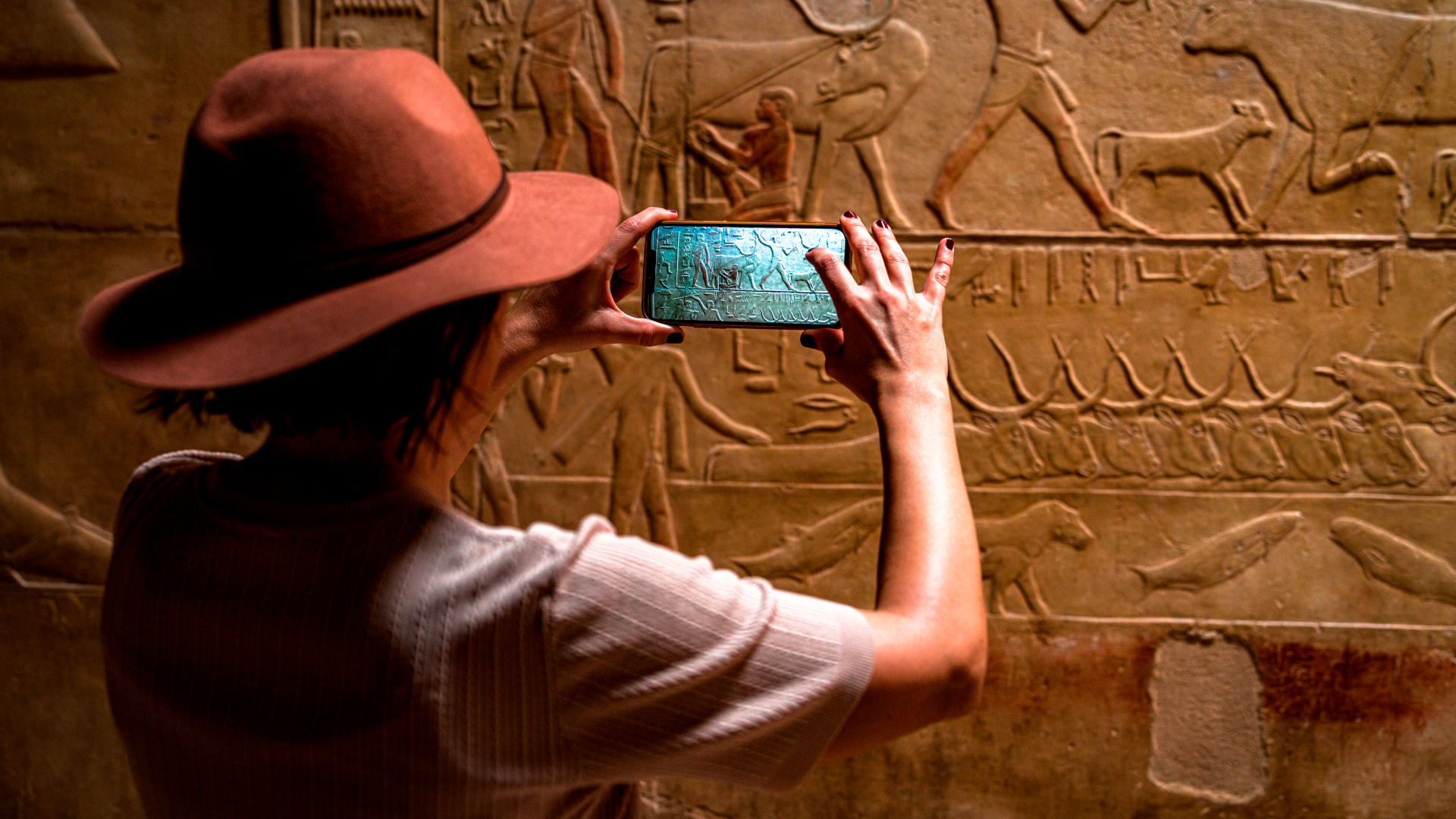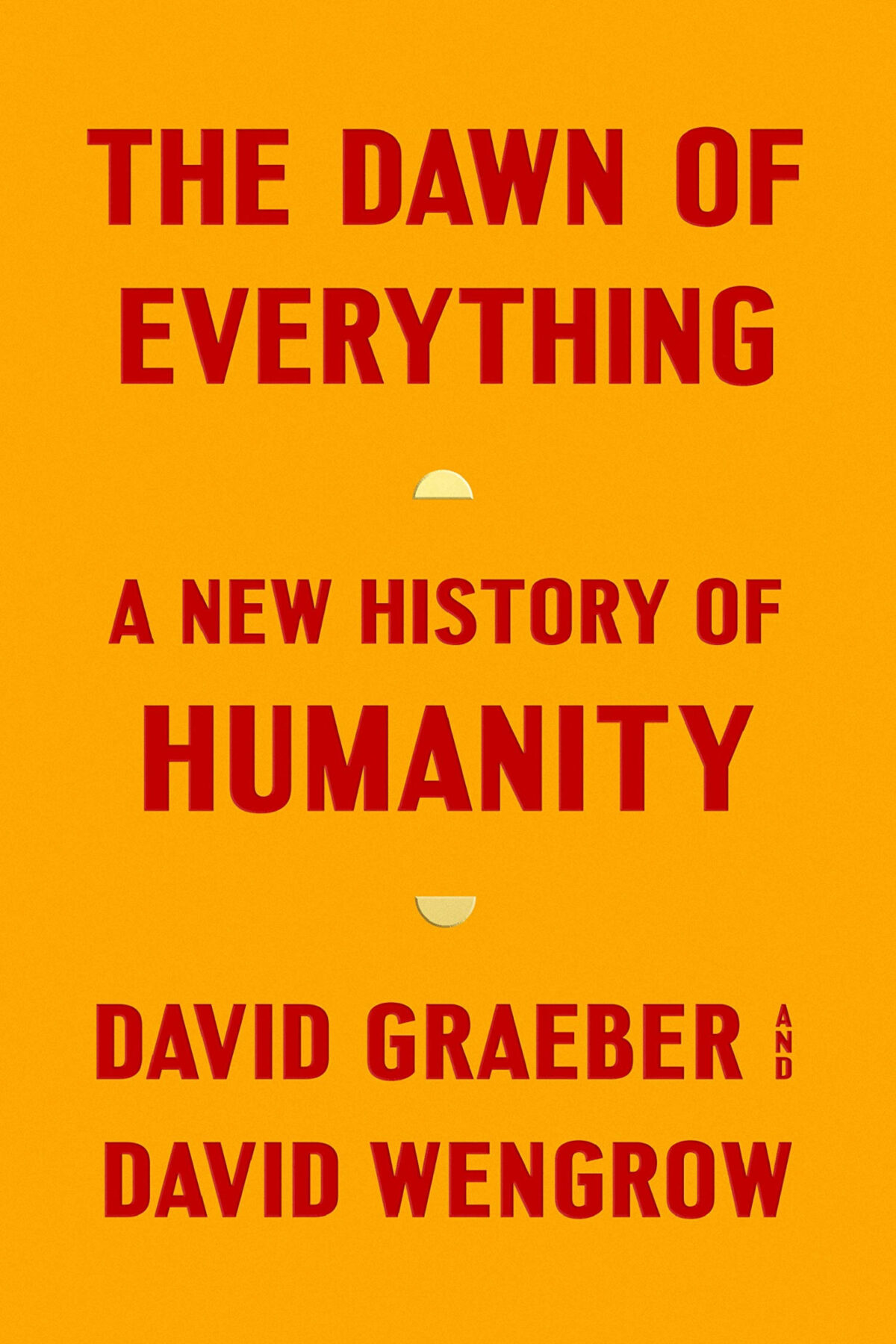The first few months of 2025 have brought forth many years’ worth of reflections on the scholarly world, as the federal government has waged an all-out assault on higher education, making attacks on science and cutting funding to museums and cultural institutions. This moment in history is about more than any single act or targeted institution but signifies a war over what the truth is and how to preserve it. In light of this, debates about who we are as a society and where we are going are as timely as ever.

“The Dawn of Everything,” the 2021 book by anthropologist David Graeber and archaeologist David Wengrow, caused a stir because of its attempt at a radical retelling (or un-telling) of how civilization happened. It proposes that there is no simple, reductionist story of human history. Instead, the defining feature of the structure and fates of societies is idiosyncrasy, driven by the human propensity to explore different lifestyles and ways of organizing themselves. Graeber and Wengrow offer that we aren’t wedded to any single form of living, loving, parenting, governing, eating, or worshipping. What we do is the product of human agency as much as any other measurable force. This thesis runs in contrast to the scholarly tradition of classics like Jared Diamond’s 1997 book “Guns, Germs, and Steel: The Fates of Human Societies,” which provided environmental and scientific explanations (based in immunity, geography, and ecology) of how history unfolded.
Nearly four years after its release, the controversial arguments in “The Dawn of Everything” have found new importance. Modern political machines insist that there is a right way for a family to be constructed, that gender is binary, and that ideologies that support alternative lifestyles undermine a healthy society. Furthermore, biological determinism — the notion that fates are hardwired into our biology, perhaps through genetic information — has found new life in several corners of society. For example, politicians now boldly advance not-so-subtle claims that there are essential characteristics of the human life and experience. Similarly, debates over free will and intelligence have gained momentum, often in the context of the rise of artificial intelligence and its promise for remaking our world.
“The Dawn of Everything” offers an alternative worldview, and its heft (more than 700 pages) is a product of its use of evidence. The book’s chapters blitz the reader with numerous empirical cases of groups that adopted different lifestyles and forms of social organization. The book, for example, describes the origins of slavery in non-agricultural communities in North America. The authors summarize existing explanations for why certain society-lifestyles emerged and offer a reinterpretation based on their analysis.
The project’s main targets are two schools of thought that have dominated scholarship surrounding the development of society. One is the Hobbesian conception that human civilization is a story of progress from the early days — when life was “nasty, brutish, and short” — to the formation of sovereign states that maintain order. The second is the Rousseauean lens that modern society represents a regression from the lives of pre-agricultural humans, who are often captured by the image of the “noble savage.”
These two schools of thought have profoundly political implications. Celebrations of the rise of the Western world often invoke the Hobbesian take, while leftist schools are often built on the Rousseauean version, which embraces the idea that humans are inherently good and that state power and capitalism ruined everything. Graeber and Wengrow make the case that both views are misguided, that there is no linear tale of human history. They argue that a closer look at the data reveals that human beings have been experimenting with models for how to live as far back as we can look.
Although “The Dawn of Everything” has received praise, it is not without notable detractors. Some critics have pointed out inaccuracies or hinted that the book’s novelty is overstated. In sum, the backlash suggests that the authors sought to advance an ideological position and may have selected evidence in service of their political stance. But even critiques of the book’s case studies aren’t necessarily unfriendly to its overall message. My own take is that many critics acknowledge that we should encourage more nuanced summaries of who we are as species, and why we live the way we do. There may be no equivalent to Newton’s Laws for cultural evolution, so to understand what has happened, we’ll need to consider the role of power, choice, culture, and chance.
Debates over free will and intelligence have gained momentum, often in the context of the rise of artificial intelligence and its promise for remaking our world.
The book was written by experts with large reputations, who have authored provocative views on society. Wengrow is an award-winning and internationally recognized archaeologist and an expert on the Middle East and Africa. Graeber, who died a year before the book was released, had established himself as one of the most prolific cultural anthropologists of his generation. He was famous in circles for his prodigious productivity, his activism (he was a prominent figure in the Occupy Wall Street movement), and anarchist political views.
The ghost of Graeber lives in the pages of the book, talking to the readers of yesterday, today, and tomorrow. He never ran from controversy, and “The Dawn of Everything” was just the first in what was supposed to be a series of texts that the authors envisioned writing. (In Graeber’s absence, Wengrow is currently working on a sequel that he plans to title “The Third Freedom,” which will focus on the “human capacity for social creativity,” he wrote by email.)
Wengrow spoke to me in 2023 about what Graeber anticipated for the book: “I think he knew that the book would generate a lot of discussion and a certain amount of pushback, but I don’t think he would’ve predicted that it would come onto the New York Times bestseller at No. 2.”
“That’s what I hold onto: that people want to read a 700-page tome with 60-something pages of bibliography and copious footnotes,” Wengrow added. “You’re always told as a professional academic or writer that you’ve somehow got to dumb down the facts or something. That isn’t true.”
In the wake of a major societal transformation, “The Dawn of Everything” gives us a sobering but necessary message.
In their perspective on human history, Graeber and Wengrow fed a public appetite for big ideas that help make sense of it all. The existential confusion of 2025 only amplifies this hunger. Fascism yearns to strongarm society into specific ways of life, digital spaces emerge as a primary way that humans connect to others, and overlords in the tech sector come closer to realizing science fiction tales of society running on AI algorithms.
In the wake of a major societal transformation, “The Dawn of Everything” gives us a sobering but necessary message. History contains multitudes, often driven by human decisions and not the invisible hands of biology, physics, economics, or God. The bad news is that life can be hard, and ills of society are often the product of the choices that we make. But the better news is that however inevitable the dark times may seem, there are other versions of the past to remember and the future to imagine, ones defined by expansive possibility.












Since I loved reading this book, I’m glad to see more written about it. Perhaps even more people will read and enjoy it – or get riled enough to debate its points, which is also valuable in the scheme of things.
Such nice points raised here! We could all do with a reminder about the non-linearity of history, and how what was old could be new again (but not in the way favored by “traditionalists”).